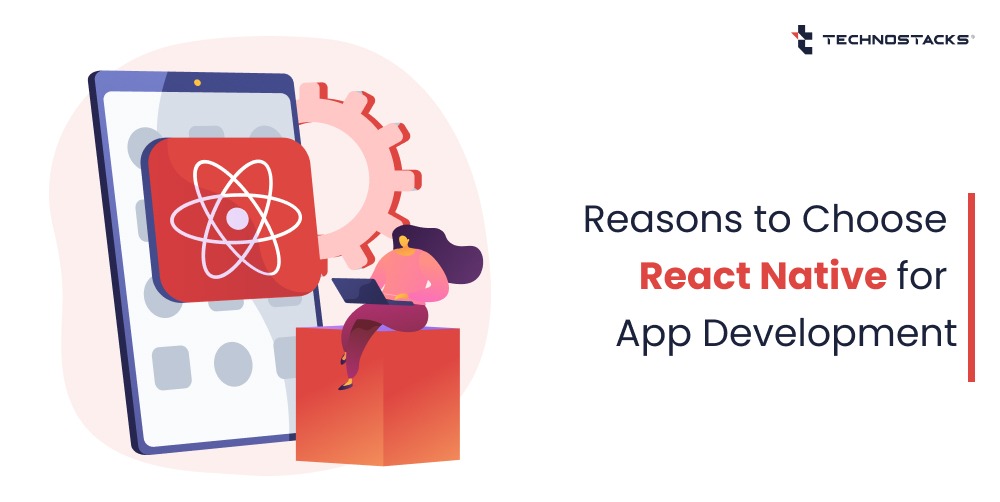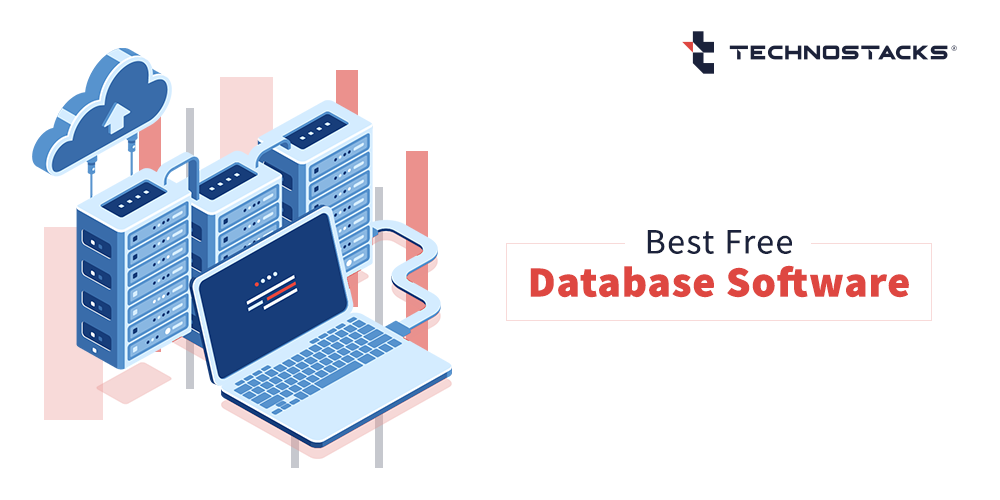Why Choose React Native for Mobile App Development?
The current market for mobile application development is extensively growing and maturing. As per Statista, over 3.5+ million apps are obtainable in the Google Play Store, while there are 1.6+ million apps accessible in the App Store.
At first sight, there may be only two primary choices for reasons to choose React native app development: developing apps based on Android for the Google Play Store or developing apps based on iOS for the App Store. It was correct for a considerable amount of time.
However, there is now a third alternative available: the development of cross-platform apps. When this is the case, to enable the strategy for developing apps that run on several platforms successfully it is better to use the React Native mobile development framework.
In addition, we will demonstrate in this blog how it operates and discuss the advantages of utilizing React Native for the development of mobile applications.
What is React Mobile App Development?
According to Verified Market Research, the market for developing React native app examples that work on many platforms is expected to reach $364.54 billion by 2028. This kind of enormous leap is made possible by the advancing technology for the development of mobile apps, and React is one of the tools in this specific category.
As a declarative programming system geared at the building of native mobile applications on top of a JavaScript base, the initial version of React was made available for download by Facebook in 2013. In its most basic form, the React family consists of two members: ReactJS and React Native.
What is ReactJS?
The year 2013 saw the development of the first version. There is a number of React component libraries available that programmers may use to create web pages compatible with any mobile-based device and any operating system (OS) that may be installed on a specific device.
What is React Native?
The year 2015 saw the creation of the second iteration of the program. React Native provides developers with a framework that enables them to build native applications for both iOS and Android.
Read More:- Pro Tips For React Native Performance Improvement
Significant and Essential React Native Features
It can be a very difficult task to find qualified React native developers who specialize in React, iOS, or Android. However, if you are familiar with the essential components of React native mobile app development framework, the procedure will be somewhat simpler. Without further discussions, let’s run down the essential features and components of developing mobile apps with React Native:
1. Components
These are the fundamental components that make up every specific React Native app. Code is broken up into reusable sections called components. Components are put together based on the logic they contain. Every app built using React contains numerous components, each of which might be of the class or functional variety.
2. One-way data binding
This feature connects a certain data component with a component of the user interface. The procedure only moves in one direction, improving app control. To put it in another way, one-way data binding ensures that a single modification will not affect the application’s code.
Read More:- Benefits in Costing To Hiring Offshore React Native Developers
3. JavaScript XML
The JavaScript syntax has been directly expanded thanks to this new capability. Developers “teach” React using JavaScript XML is the way how the User Interface should appear and behave so that it can be better used.
4. Virtual DOM
DOM is the structured representation of the HTML-based components. The features are updated to reflect all the changes made to the app. When seamlessly updating the program, the system will compare the newly released version to an earlier version.
These components make up the core of React Native, guaranteeing that an application built with the framework will be responsive and provide the user with the best possible experience.
Why Choose React Native for App Development?
React Native is highly effective for mobile applications. It offers a slick, smooth, and highly responsive user interface (UI), while precisely trimming down the overall load time. It is also much quicker and cost-effective to develop applications in React Native as compared to developing native ones without the requirement to compromise or negotiate on higher quality, better features, and enhanced functionality.
1. Functionality that is available across platforms
You may construct applications for both iOS and Android with React Native and enable Cross-platform functionality. Because it just requires one set of code to build apps for Android and iOS, leveraging React Native can save organizations significant amounts of time. When compared to more conventional approaches to React native app development, it cuts the amount of time and money needed for development in half.
2. Increased speed in performance
The functional component of the framework makes it possible for apps built with React Native to have improved performance and to operate more seamlessly.
3. Single code for multiple platforms
Develop versions of components specific to each platform so that code may be shared between them using just one codebase. With the help of React Native, a single team can handle various platforms while utilizing a singular piece of React technology.
4. Experience similar to that of native apps
The apps that are produced with React Native for your mobile app development are compatible with a variety of browsers. They are compatible with browsers on mobile devices as well as desktop computers and offer Native apps like experience.
5. Reusability
The code that makes up the framework can be reused by developers working with React, which simplifies app creation and maintenance.
6. Testing
This component is critical to the production of high-quality mobile applications. It is much simpler to test and troubleshoot an end product using the many testing tools offered and backed by React Native.
Best Use Cases of React Native
Before committing to a company to construct a React Native mobile app, you should investigate whether or not the framework has been used in the past by that service provider company. Those familiar with the variety of available React-based mobile apps can rest assured that the framework is in full operation.
There are the best apps in the world that are measured for both high-end popularity and better earnings. Every day, almost a billion individuals use native apps. Many programmers agree that native applications are the way to go when it comes to developing mobile-based applications. Most businesses have already discovered why React Native is their preferred platform for creating mobile applications.
React Native is widely used by the tech giant and other small businesses. Here are some examples of React Native that shows you its popularity.
List of some of the Famous React Native apps:
- Discord
- Bloomberg
- Vogue
- Salesforce
- Baidu
- Walmart
- Wix
- Skype
- Shopify
- Words with Friends
- NerdWallet
- Uber Eats
Reasons to Use React Native for Mobile App Development
React Native has several technology and business benefits. The functional component of the framework improves the performance and functionality of apps developed using React Native. Listed below are the top things to think about regarding the benefits and reasons of using React Native:
1. Live Reload
The live reload functionality of React Native enables you to view and work with alterations in real-time basis. You can make error fixes while the application is in the loading process and it will be replicated in the application with precise automatic reloads. You can even reload a specific part of alteration to save time and effort on the compilation.
Thanks to these beneficial returns of using React Native, which has made it rise to the top of the cross-platform mobile React native app development frameworks.
2. Enable 3rd Party Plugins
Since developing an application from scratch can be costly, React Native provides a number of 3rd party plugins choices comprising JavaScript-based and native modules. The 3rd party plugins eradicate the necessity for explicit web view functions and assist in improving the app’s features, functionality and productivity.
3. Cross-platform functionality
With its cross-platform functionality, React Native streamlines the development process, making it easier and more cost-effective to build high-quality mobile apps that work seamlessly on both platforms.
React Native’s cross-platform functionality allows developers to build mobile applications for both iOS and Android platforms using a single codebase. With streamlined development, businesses can save time and resources, while providing a seamless and consistent user experience for their customers across both platforms.
4. Cost-Effectiveness
As the programming is reusable in React Native, it assists you save development-based costs. You don’t have to hire two diverse Android and iOS teams to craft the application. Along with it, there are several pre-built elements and components in React Native that further quicken the app development procedure and reduce costs.
5. Faster performance
The framework’s code can be reused by React developers, simplifying both app creation and maintenance with faster performance levels.
React Native is known for its faster performance compared to traditional native app development. It’s because React Native apps use a different approach to rendering components than traditional native apps. Instead of using WebView or other similar tools, React Native uses a compiled code that is run natively on the device’s processor. This approach results in faster rendering times, smoother animations, and overall better performance.
Moreover, React Native is optimized for mobile platforms, allowing developers to build high-performance apps that load quickly, even on slower connections. With faster performance, React Native makes it easier and more cost-effective to build mobile apps that deliver a better user experience, helping businesses to increase user engagement and drive revenue.
6. Compatibility with Diverse Platfroms
React Native applications work in any web browser. In terms of browsers, you can use either a mobile device or a desktop computer.
React Native is compatible with various platforms and can be used to build apps for both iOS and Android operating systems. Developers can write code in JavaScript, and the same code can be reused for both platforms. This means that React Native provides cost-effectiveness and quick development for businesses.
Additionally, React Native can also be integrated with other technologies such as Redux, Flux, or MobX, enabling developers to manage data and state more efficiently. Moreover, React Native is also compatible with the web platform, making it easier to reuse code across different platforms. Overall, React Native’s compatibility with various platforms and technologies make it a popular choice for businesses looking to build high-performance and cost-effective mobile apps.
7. Large Community
The group of people working on React projects is really solid. Any questions you might have can be answered by looking at their framework.
React Native has a vast and vibrant GitHub community of developers and contributors. This community is one of the strengths of the framework, as it provides a wealth of knowledge and resources for developers looking to build mobile applications using React Native.
The community actively contributes to the development of the framework, offering a wide range of libraries, tools, and documentation to make it easier for developers to build high-quality apps. This includes support for various platforms, including web, desktop, and even virtual reality.
The community is constantly updating and improving the framework, fixing bugs, and adding new features to help developers create even better apps. This ensures that React Native remains relevant and up-to-date with the latest trends and technologies, making it an excellent choice for businesses looking to build high-performance mobile applications.
8. Quality Assurance
This is a fundamental part of making useful apps. Multiple QA options are available in React Native, making it simple to put the final product through its paces and fix any bugs or errors that may crop up.
9. Dependable
You can move ahead and consider React Native as a reliable framework. Not only does Facebook itself leverages it, however, so does other top companies.
React Native is a dependable framework that offers a high level of reliability and stability. It provides a stable and consistent environment for developers to build mobile apps with minimal risks of bugs or errors.
Moreover, the framework has a strong and dedicated community of developers and contributors who continuously improve and update it, fixing bugs and adding new features to ensure it remains reliable and dependable.
10. Highly Robust
Some functionalities of React Native tech make it well worth the business investment. Installing React Native is straightforward and just requires the Node Package Manager (NPM) and a single line of programming.
React Native is a robust framework that offers developers the tools and resources they need to build high-performance mobile apps. The framework’s modular architecture and reusable components make it easy to develop and maintain mobile apps, reducing the risks of errors and bugs.
It is compatible with a wide range of platforms and technologies, allowing businesses to build robust and scalable apps that can handle high levels of user traffic and usage.
11. Performant
The applications you develop with React Native won’t merely be web-based applications but native apps comparable to native code in Java and Swift. This scenario means programmers number one anxiety – losing on performance levels can be abridged.
12. Swiftness
It takes less time to code with React Native than to build distinct, stand-alone applications leverging Java, Swift, or other native-backed languages.
React Native is a fast and efficient framework that allows developers to build mobile apps quickly and efficiently. Its simplified programming model and modular architecture make it easy to write and maintain code, reducing development time and costs.
Moreover, React Native is optimized for mobile platforms, providing faster rendering times, smoother animations, and overall better performance compared to traditional native app development. This ensures that mobile apps built with React Native are fast and responsive, delivering a better user experience and driving user engagement and revenue.
13. Simplicity
Compared to other frameworks like Vue.js, React is simple to pick up and utilize. The framework can be used with only a fundamental understanding of JavaScript.
React Native is a framework that offers a simple and intuitive approach to building mobile applications. Its simplified programming model is based on JavaScript, which is a widely used and popular programming language, making it easier for developers to create mobile apps without having to learn new languages or tools.
Furthermore, React Native’s modular architecture, reusable components, and declarative approach to building UIs make it easy to develop and maintain mobile apps. This approach allows developers to write code once and use it across multiple platforms, saving time and effort.
Overall, React Native’s simplicity makes it an excellent choice for businesses looking to build high-quality mobile apps quickly and efficiently. Its streamlined development process can help businesses reduce costs while delivering better user experiences, driving engagement and revenue.
14. UI Focused
React Native leverages the React JavaScript library to develop application interfaces that are swift and highly responsive. It has rendering capabilities and utilizes the component-based approach which makes it simple to craft both straightforward and complex UI-focused designs.
Possible concerns with React Mobile Development
When it comes to mobile React native app development frameworks, there is no single solution that will solve all problems. If you are considering commissioning a company to develop a React Native mobile app for you, it is vital to be aware of the concerns.
- Even if there is a sizable and lively React community, Stack Overflow is still home to thousands of questions about React and other frameworks in the same category. This may indicate that the associated manuals and instructions for using the framework aren’t of very high quality.
- There is a potential decrease in performance caused by using JavaScript in React. The gap between React and JavaScript continues to make applications built with React run more slowly than Native applications.
- To summarise, applications with complex user interfaces are unsuitable for the React Native framework. Due to a large number of moving parts and associated systems, there is a possibility that it will malfunction.
If you don’t mind those drawbacks, then you should use React Native as the framework for the creation of your mobile app. However, it is important to keep the issues in mind in case there are plans to improve the user interface.
Key Takeaways
Hybrid mobile applications have come to represent and have a strong viewpoint for the future of tech innovation. There is no hesitation that React native is the future of hybrid app development. It can be implemented as cross-platform and hybrid app development platform availing both the presentation of a native app and ease of development as a web application.
Read More:- Advantages of Hybrid Mobile App Development
So now you know why should you choose React Native? It is a precise, cross-platform, cross-browser, and ground-breaking technology framework. This framework has a list of distinguished references with billions of user base in the global marketplace and industry.
Technostacks is a leading React Native development company with a global presence and extensive experience in delivering successful React Native projects. Our team of expert developers has worked on numerous React Native-based projects, delivering innovative solutions that drive business growth.
If you’re looking for a reliable React Native development partner, look no further. Contact us today to discuss your project requirements and hire dedicated React Native developers for your next project.
FAQs on Why Use React Native For App Development
1. Why should you choose React Native for mobile app development?
React Native is an excellent choice for mobile app development due to its cross-platform functionality, faster performance, and simplicity. It allows developers to build high-quality mobile apps using a single codebase, reducing development costs and time. Moreover, React Native has a vast and vibrant community of developers and contributors, ensuring that the framework remains up-to-date and relevant. Its compatibility with a wide range of platforms and technologies and its robustness and dependability make it an ideal choice for businesses looking to build high-performance mobile applications.
2. Is React Native good for mobile app development?
Yes, React Native is a good choice for mobile app development because of it’s compatibility, reusability of code, Live reload functionality and access of a 3rd party plugins. Many organizations favour utilizing React Native as a solution for app development since it helps them avoid the expense and inconvenience of hiring React Native developers with two sets of programmers to work on separate code bases for iOS and Android.
3. What is React Native & how it is used in mobile app development?
React Native is an open-source mobile application development framework that allows developers to create high-performance mobile apps for multiple platforms, including iOS and Android, using a single codebase. It uses JavaScript to build UI components that are natively rendered on mobile devices. This enables faster development, easier maintenance, and reduced costs. React Native is widely used in mobile app development due to its robustness, dependability, cross-platform functionality, and simplicity. Its modular architecture and reusable components make it easy to develop and maintain mobile apps, reducing development time and costs.
4. What are the advantages of React Native?
Here are some benefits of using React Native for mobile app development.
- Cross-platform functionality
- Faster performance
- Compatibility with various platforms and technologies
- Robustness and dependability
- Simplified programming model
- Modular architecture for easy development and maintenance
- Large and active community for support and updates
- Cost-effective development due to single codebase
- High-quality and scalable app development
- Better user experience with fast rendering times and smoother animations.
5. What is React Native best for?
In a nutshell, React Native is your best option if you plan on developing a mobile application. It significantly reduces load time while simultaneously creating a user interface that is clean, fluid, and responsive. Creating an app with React Native does not need you to make any sacrifices in terms of the app’s functionality or quality, and it also takes a lot less time and is less expensive than developing a native app.
6. Why React Native is faster?
React Native is faster due to its unique architecture, which uses a JavaScript engine to communicate with native modules. This allows React Native to process UI components and execute native code in a more efficient manner, resulting in faster rendering and improved performance. Additionally, React Native supports the use of native code for CPU-intensive tasks, further enhancing its speed and performance.
7. Why React Native is better than Flutter?
React Native has a larger community, which ensures better support and frequent updates. It offers cross-platform functionality, meaning that a single codebase can be used for iOS and Android development. React Native also has better compatibility with existing technologies and platforms. Additionally, it supports hot reloading, allowing developers to instantly see changes in the app without restarting.
Flutter, on the other hand, offers better performance and faster development due to its “hot reload” feature, but has a smaller community and less compatibility with native technologies.
8. Is React Native the future?
React Native has been leveraged and utilized among programmers for more than 7 years now, and positively gained thrust because of its effectiveness among technology giants. React Native future scope is fruitful and is comprehended as one of the best and finest technology frameworks ahead of time.
9. How do you make a mobile app using React Native?
Here are the steps to develop mobile app using React Native:
- Make sure create-react-native-app is set up
- Install Expo CLI
- Build a React Native Project
- Install and facilitate React Native Command Line Interface
- Get going with react native
- Send the project packing
- Set the Android Studio
- Enable AVD Manager Setup
- Facilitate Android operating system
- Set local.properties
- Extract data in React Native
- Finally, set up multiple screens to the React Native application
10. Is a React Native developer a mobile developer?
Yes, a React Native developer is a mobile developer. They specialize in creating mobile applications using React Native, which is a mobile application development framework.
11. Is React Native is native mobile app development platform?
React Native is a hybrid mobile app development platform that uses JavaScript and native code to build cross-platform mobile apps. While React Native uses native components, it’s not a purely native platform. However, it provides many of the same performance benefits as native development and is widely used for building high-quality mobile apps.








